
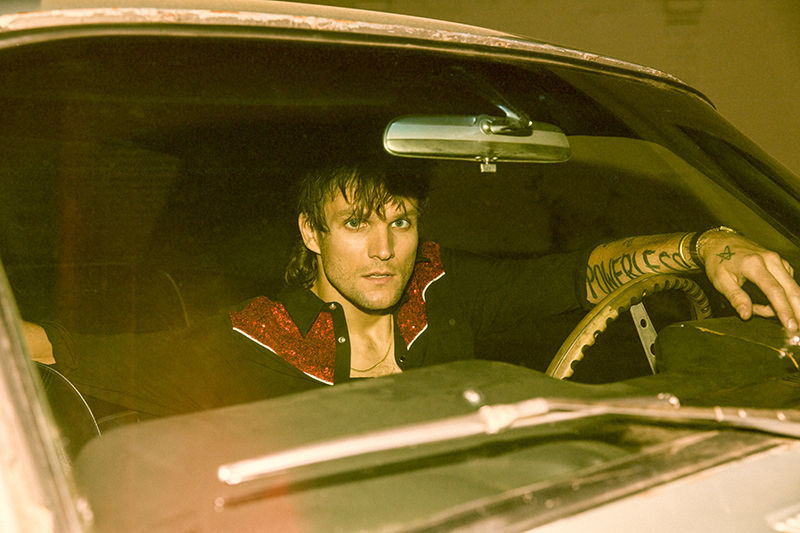
STORY // ANGIE PICCIRILLO
PHOTOS // KATY PRITCHETT
GROOMING // LAUREN MCKEEVER
STYLIST // MEGAN KELLEY
I’ve said this before, but The Night Game is the millennial hipster’s wet dream. He’s accidentally 80’s nostalgic in aesthetic — and every track on his debut album are as if the soundtrack to Friday Night Lights and Bruce Springsteen’s discography mated and had multiple magical children right on first base in Kevin Costner’s Field of Dreams. If he were a cocktail he’d be something you’d be served in an artisan whiskey bar — and once you were drunk, you’d remember all the relationships-gone-wrong and wonder where choosing the different sliding doors would have caused a ripple in time and changed your existence — instead of just sitting here alone at this bar.
I’m not going to make this another profile piece about how “The Night Game’s Martin Johnson used to be in pop-punk slash emo band Boys Like Girls, sang alongside T-Swift and that he wrote and produced songs for Avril Lavigne and tons of other artists.” You can go to wikipedia and read all the other album reviews for that. And the truth is, “Boys Like Girls Martin” is the Martin of the past — especially, if you’ve heard his new project: The Night Game.
What you might not know, is that he produced and wrote songs for other artists, that is, until a few years ago… when he realized he’d lost the magical feeling of performing and singing, and basically had sworn off making music for others. He instead began focusing on a then nameless project that literally was a test for him to see if he could love music again.
When I met Martin earlier this year at a music festival, the most memorable thing he said to me was that he wanted his music to tell stories — and he meant that more than just with his lyrics. I remember him telling me that each guitar part had to say something, it couldn’t just be there just to be there. I’ve interviewed a lot of musicians, and I honestly don’t think I’ve ever heard anyone say that to me, at least not as simply put… and once I had a preview of the album, it became a sort of “game” for me to listen to the lyrics and the guitar, and try to figure out just exactly what the story was for each song. But maybe more intriguing, is the story of Martin Johnson himself. Not Martin Johnson “The Night Game,” but Martin Johnson’s return to the stage…
Most struggling musicians would give their left arm to have the success that Martin has had — but it must be tough to have seriously “made it,” only to realize it wasn’t all it was cracked up to be. And then to choose not only another path, but basically a path that started your career over, probably sounds crazy to most… Maybe Martin is interesting to me because he’s truly seen both sides of the coin and somehow picked the more difficult side — on purpose even? Maybe he’s interesting because he’s probably the only person I’ve ever met who is so hell-bent on finding happiness that he actually chose to abandon the easy things in order to find it… He and I bonded over our love for Musical Theatre — the place that no doubt served for his need to want to tell stories through song. I had already known “The Outfield” and “American Nights” quite well, but once I’d heard “Do You Think About Us?” — I knew there was much more to this project than just the music, mystery and kitchy 80’s jackets.
For months, when the project first started the only images we would see would be darkly lit images of a slender figure with a mullet. The music video for “The Outfield” is the back of a guy wearing a red jacket walking through multiple crowds of people in different cities — revealing a slow-motion turn at the very end, by which we never really see his face. At the time, no one knew that Martin was indeed The Night Game and that he had chosen to disregard his every accolade, a thing that most other people would never do. Rumor has it, Martin got his record deal by being contacted through DM on Instagram after Bill Burr heard “The Outfield” at “It’s a School Night” (a popular showcase in Los Angeles) He signed without anyone putting together that he was “Martin-Johnson-former-frontman-of-Boys-Like-Girls-and-successful-writer/producer.”
The first time I saw The Night Game live was at The Roxy in 2017. I had no idea who he was, and only guessed that he must be cool since I ran into several of my snobby musician friends in the audience — who all informed me he was “best friends with John Mayer” and “used to be in a popular emo band, but no one knows which one….” I couldn’t figure out why there were all these secrets. There was so much haze on stage at that performance I could barely see him. Also, why the mullet? Why such tight jeans? Was this meant to be a Springsteen tribute band?
Martin’s response to all this? “See, that’s good. You have questions.”
Over the course of the next few months, I’d follow the project through its’ various releases and became a sort of accidental friend of Martin’s. My most interesting finding throughout the whole process was that he would say how the record was all about the truth — I didn’t really know what he meant by that at the time, but I would eventually see this debut album was so much more than a collection of songs and stories, it was a mechanism for Martin to reclaim his happiness and rightful seat in the spotlight. The project seemed born out of attempting to answer: could this one thing that he’s known how to do all his life ever make him happy ever again?
Martin seems to be on a separate journey other than being “successful in music” — he’s already done that. Flashback to 2014: tortured by his producer instincts; an endless need to make things “perfect on the grid” and obsessive listening to pop radio to make sure his sound was “current “— Martin reached a breaking point. Rewind even further, back to when Martin was a kid: “There was a moment in time where I was rocking out in front of the mirror, [thinking] I’m going to be a rock and roll star and I want to sing for people, and here I am [now], working on music that I’m trying to fit in this fucking box so I can pay my mortgage and it makes me feel terrible…” he says. “When I was making this [new] music, I didn’t want to chase stuff out of fear. That kid that was holding up the strat in the mirror in the bedroom just rocking out was so gone — and the 9-to-5 soldier was introduced.”
I’ve always noticed a difference in interviewing other musicians compared to Martin’s interviews. He doesn’t mind talking about music, but you always get the feeling that he’d rather talk about literally anything else. In fact, ask him what bands he’s into — and he’ll likely divert the conversation to something about sports, likely the New England Patriots. “I hate music the way that people hate their wife… They drive you crazy, but you love them. My problem is I know too much — I’m so far away from that moment where I was just a fan,” he says. “I see the marketing plan and I see the manager’s face when he thinks of the brilliant idea and they’ll sync it with this thing and I think of the way that the waiting room at the label looks. There’s no “I’m listening to a story” anymore. I can still get it in moments; I listen to weird Irish fiddle music and it reminds me of my mother, and I listen to musical theater and it reminds me of being a kid, and I listen to old cassettes that I had and it makes me feel like I did without the thinking-about-some-fucking-metric or how many strings this thing has…”
As for where the “left turn” from his rising success as a top producer happened, his success was maybe the thing to blame, simply because it just didn’t feel right anymore for him. “I got offered A&R jobs — I think that’s what pushed me the hardest into making a record and doing the absolute opposite of where my career was taking me. At the highest moment of myself as a producer, I stopped taking calls and everyone in my life thought that I was fucking insane and probably maybe still do. It’s [now] pretty scary sometimes because it’s like, am I going to have to go back to my day job?” He adds, “I would never change my story [though], I loved the things that I worked on as a producer and a songwriter, but I was just like, what’s the point of doing this? I just don’t love this anymore. It doesn’t make me feel how it used to.”
But rather than just quitting cold-turkey, the fact that Martin loves music but also hates music — is the thing that led him to reinvent himself. “I could run away and I could move to Montana or to Wyoming and climb into the mountains and I’d still have the urge [to make music.] That’s why I stepped back into the jeans and into the boots because it was like I had locked myself into this 12×12 box making music for other people and I missed telling stories.”
Perhaps things were easier when Martin was in emo pop-punk band, Boys Like Girls in the mid-2000’s — which you might remember had hits like “The Great Escape” and “Two is Better Than One” — but this was likely because he hadn’t seen behind the wizard’s curtain yet. He may joke about how he would never revisit “being emo” ever again, but Martin admits he would never change his past. “There was a moment in time where I was a little bit self-conscious about the way that Boys Like Girls records’ sound, specifically the way that I sang on them — because it was so in-a-specific time and I was [only] 18 years old. I feel self-conscious of buying into that time and I had to really unlearn [singing like] that.”
You might remember that BLG was pretty successful at the time and they even had a 2016 mini-reunion tour, in which the band revisited playing all their songs live again after ten years. “I hang out with the guys from Boys Like Girls a couple times a week, especially when I’m in Nashville,” he says, adding “we’ll probably make another record.”

Yet, somehow along the way — despite all of his success writing for other mega-acts like Taylor Swift and Avril Lavigne, Martin began doubting himself. “When I was working on Boys Like Girls — I was so unafraid; so detached from the results. I was so convinced that I had it all figured out and [that] I was giving the absolute best that I could possibly do. I don’t know when I started doubting myself, but I have not yet completely eliminated the voice that’s like, ‘hey, man, you’re full of shit. Your pants are too fucking tight. The jacket is stupid, man. Cut the mullet. You look like an asshole. This song sucks. These people aren’t going to get it. You’ve made your last dollar…’”
The thing that likely makes Martin so interesting is the fact that though he clearly struggles with being completely confident off-stage, when he’s on-stage as The Night Game, his confidence seems somehow unwavering — he performs as if he doesn’t care what you think. “Caring” seems to go against the Night Game “persona,” but he really does care what you think. He’ll tell you he’s remixed the album seventy-five times and re-mastered the tracks twenty-seven times. “I care what people think. I used to allow a review or comments on Instagram to dictate my happiness and to dictate what I think about myself. I probably did that for the second Boys Like Girls record, so I became what I thought you wanted me to be and it wasn’t who I wanted to be.”
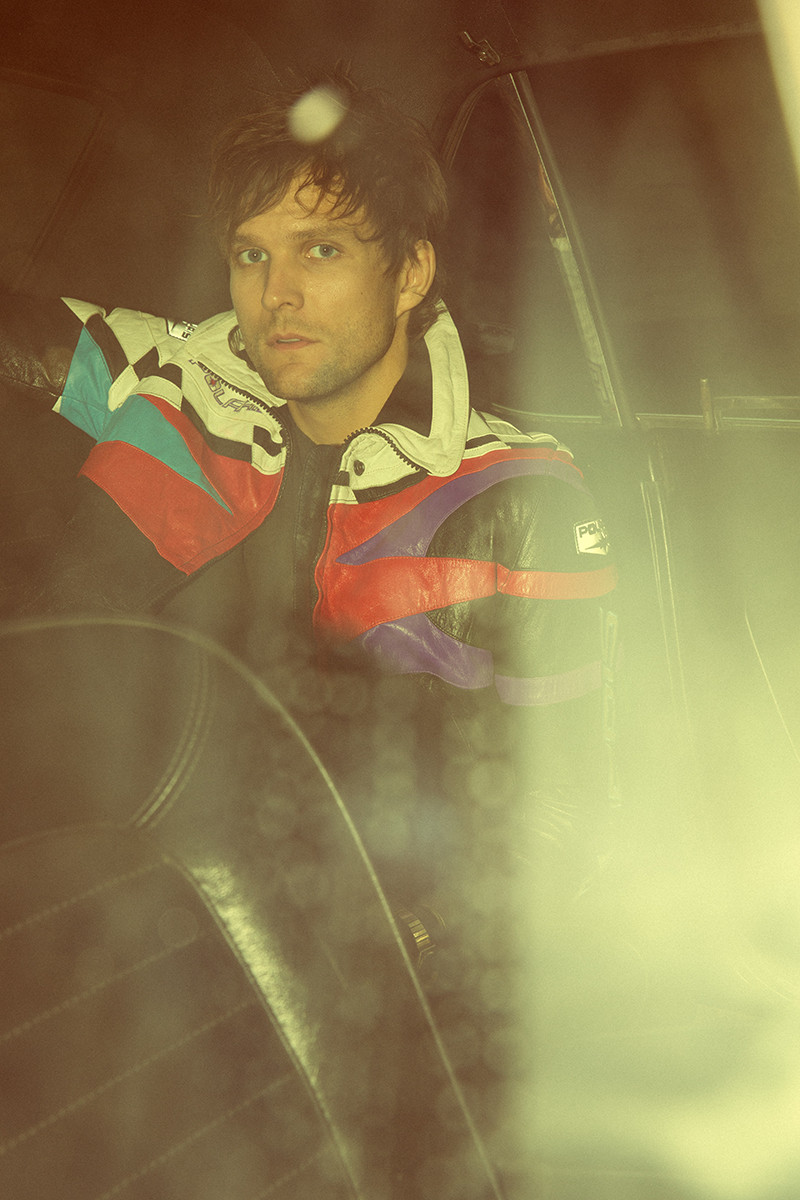
Perhaps the biggest thing to note, is the care that was taken in the making of this album — from the choice of producer Francois Tétaz, to his collaborators like Kirin J. Callinan, everything was done with such care. Rather than going into the booth singing numerous takes of songs as many other recording artists do — Martin rehearsed everything multiple times before recording. “I wrote the songs, recorded the demos and then I rehearsed the songs so that I could be giving real performances where I wasn’t singing with an affectation. I’m also still so fucking grateful to be doing [this]. I want people to like it and I didn’t think I was going to care, but you know, I care. I worked really fucking hard,” he says.
As for his somehow “accidental,” yet brilliant branding, it’s hard to argue if the “80’s thing” is truly thought out like some sort of Banksy-esque coo ready to shred itself once we’re onto him, or if it’s truly a happy accident — Martin claims the secrecy simply “came from a place of really wanting to lead with the music.” He says, “At the very beginning, I didn’t really show my face on Instagram or on the internet or on any of the press photos for like eight months, because I wanted it to be about the songs. Mostly, I think first impressions are important and I wanted the music to lead. I know that the difference between saying, ‘have you heard this new project called The Night Game? It’s really, really cool, as opposed to, ‘oh, there’s this Martin Johnson thing. You remember the guy?’”
As I write this — The Night Game is finishing up their headlining tour before heading back into the studio and the response to this debut album has been nothing but positive. And even now, with people knowing that Martin was in fact in Boys Like Girls and responsible for your favorite Avril songs, it somehow simply just makes them love the project more.
Looking back on this album, Martin laments, “The point of this record was ‘can I do something honest? Can I make an honest story? Can I get in front of the computer and synthesizer and guitar and just tell a story?’ In doing so, it was like I disconnected from the thing that was making me rot — chasing whatever was on Spotify and whatever was on pop radio.”
In the end, it may appear that Martin is almost running from the thing that makes him crazy — only to arrive back in its’ arms hoping for a different outcome. His relationship with music may be one where he escaped repetitive madness — as if he were a Sisyphus-like character, pushing the boulder up the hill, only to be crushed by it when it rolls back down. Only he knows nothing else but music, he just has to find a different way to deal with that damn boulder. “Is this what I’m supposed to be doing? Because it’s all I’ve ever done. Since I was four I’ve just been making music. I got a ukulele when I was three and I begged my dad and mom every single day for a guitar until I got one when I was six, and I’ve been writing songs ever since. There’s never been an alternative route,” He says. “There was a moment in time where I identified myself only with the things that I had achieved in music and I think that life is more than that. Honestly, that’s the story of making this record — I decided to do something real regardless of what the monetary value and what it was going to deliver me. Did it work? I’m not sure yet.”
Martin may have escaped his purgatory with this new project — and whereas, others would be happy to make it to “rock stardom” just once, Martin has made it twice. “Every day is a new journey to try and figure out what the fucking point is. Not just musically, but, everything,” he says. “It’s not about me in the studio and my story anymore. It’s about the person that’s driving with the windows down and listening to the song and they have a moment. It’s about [them being] in the Mazda Prema and the freakin’ window is duct-taped and maybe that’s the first time that the girl grabs your hand and the song is on… It’s about that moment. It’s not about me. It’s about that moment. It’s about life.”



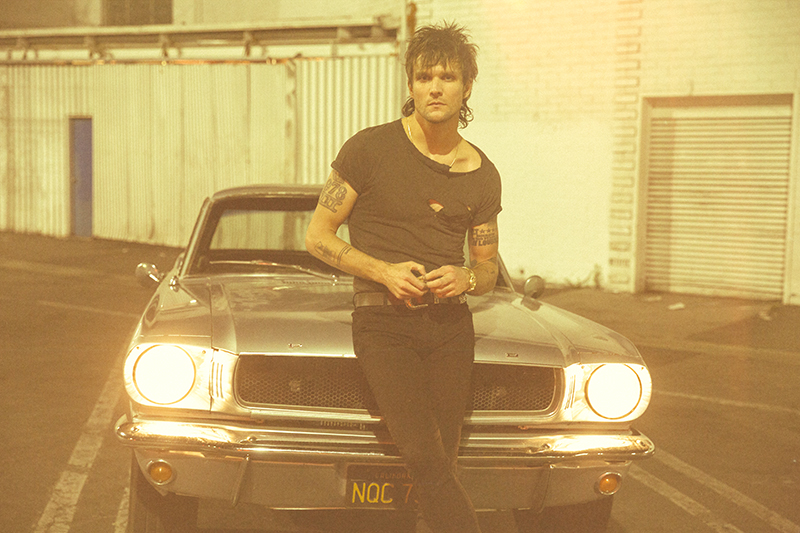
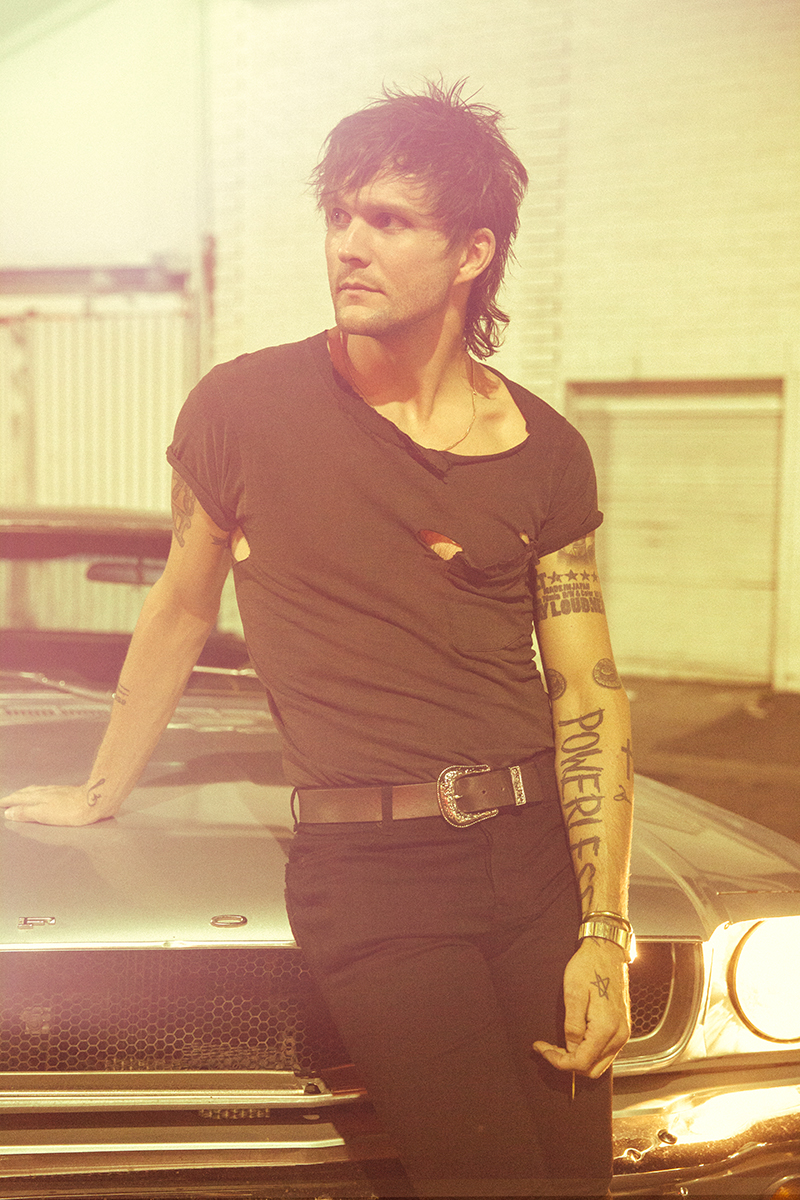
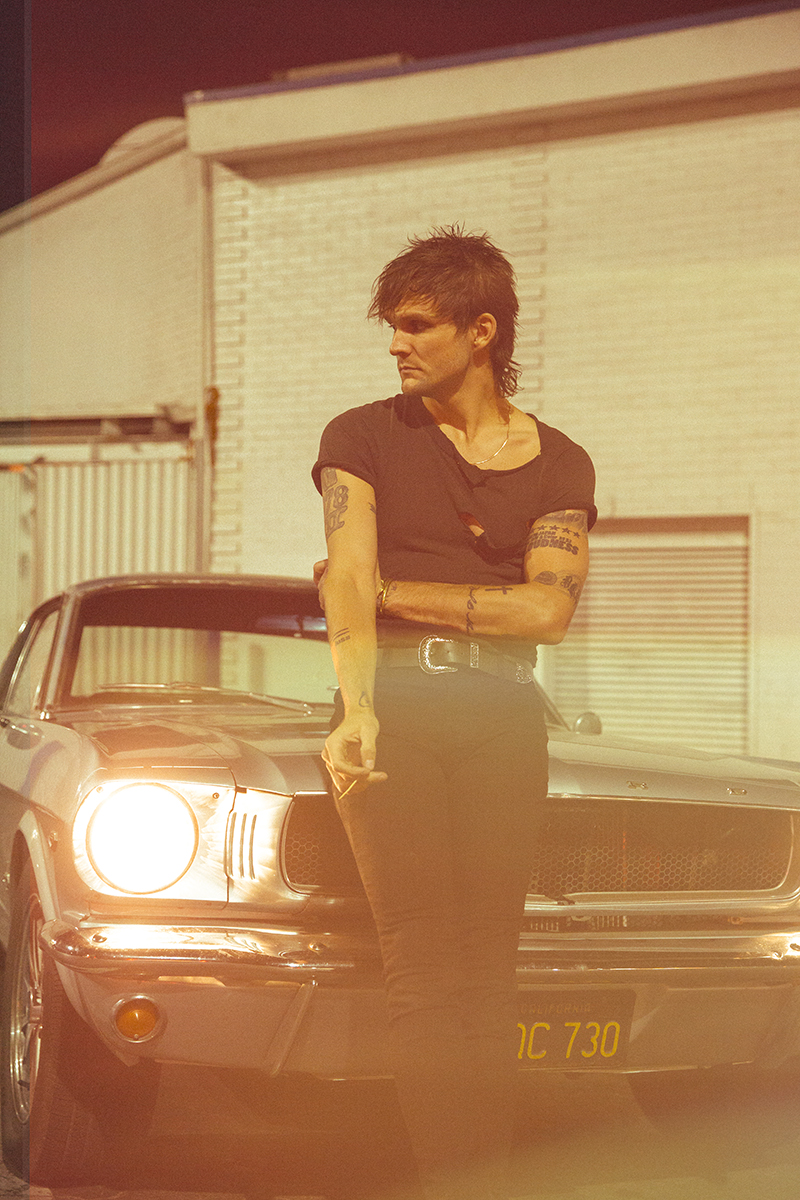
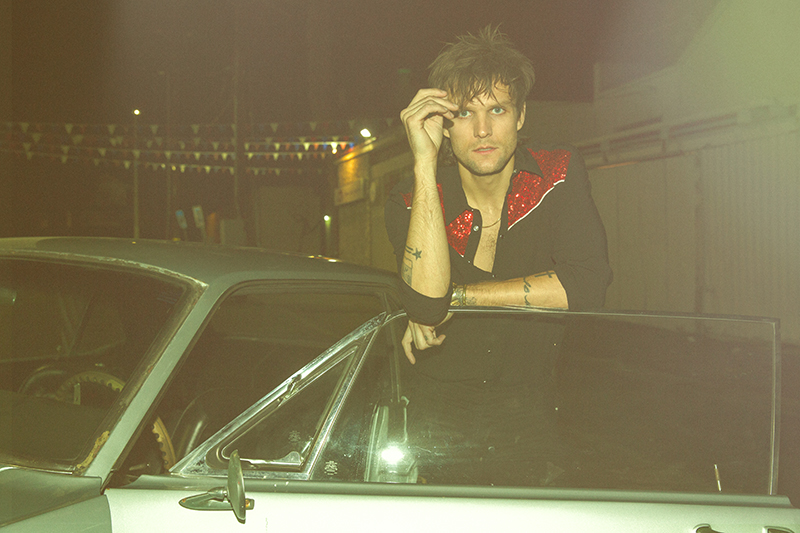
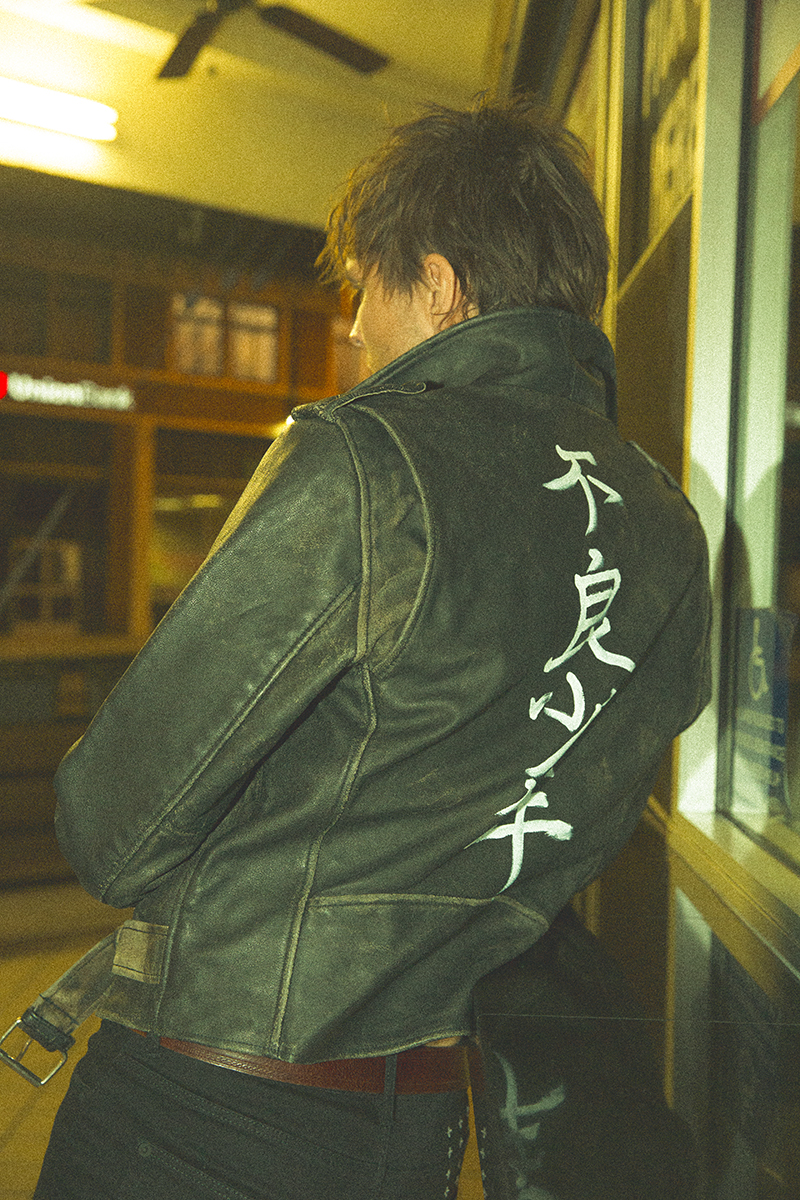
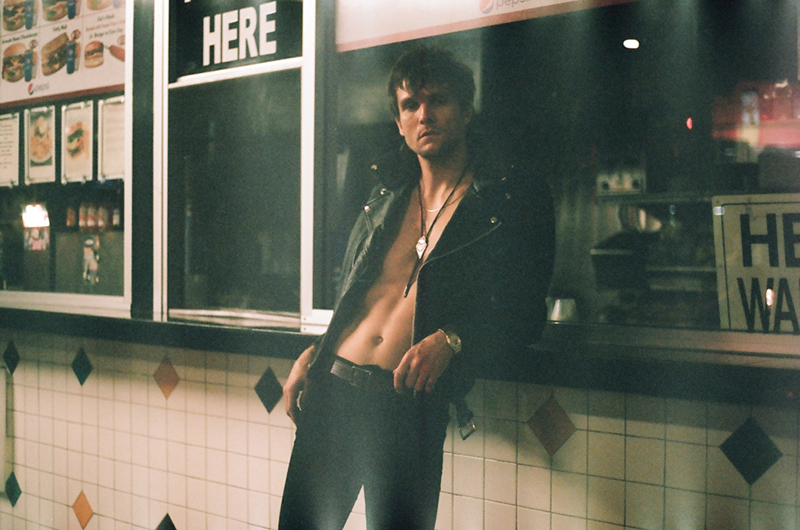
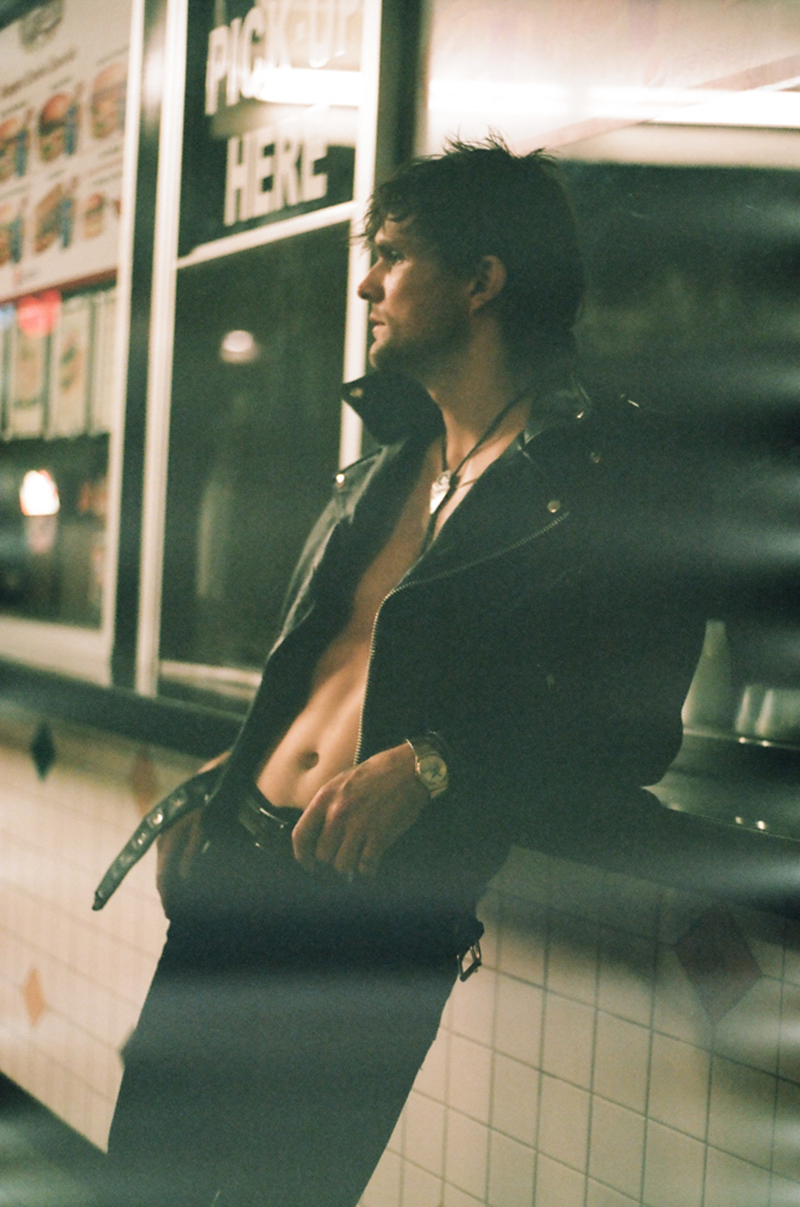



CONNECT WITH THE NIGHT GAME
